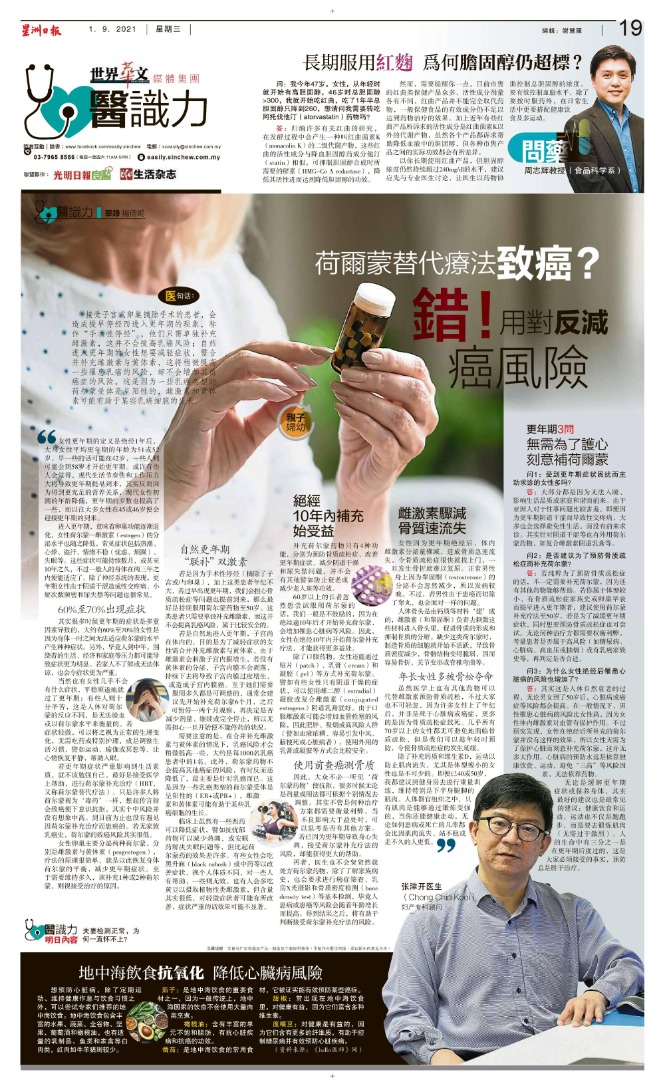Hormone Replacement Therapy for Menopausal Women
01 September 2021

Menopause marks the end of a women’s menstrual cycle and the average age that Malaysian women experience menopause is around 51 and 51 years old, while some experience it earlier at 42 and some don’t until 58 years old.
“Some believe that the fast pace of modern life and work pressure leads to early menopause, in fact better nutrition has reduced the age when women experience menopause compared to the past when they would experience it around the ages of 45 and 46,” said Dr Chong Chin Kooi, Consultant Obstetrician and Gynaecologist at Sunway Medical Centre.
Common symptoms of menopause include hot flushes, heart palpitations, night sweats, mood changes and insomnia. These symptoms may last for month or even years but the average person adapts to it within two to three years. Painful intercourse, frequent urination, urinary incontinence and vaginal dryness are also common in menopausal women.
These symptoms are caused by multiple factors and about 60% to 70% of women experience these symptoms due to their bodies being unable to adjust to the hormone levels. The stresses of daily life can also cause the symptoms to become more pronounced and if family members are unable to understand, these symptoms may become more severe.
Of course, there are some women who experience few symptoms and go through it smoothly. In this case, women can consider adjusting their lifestyle habits to restore their mood and help them sleep.
However, if these symptoms are affecting your quality of life, do not suffer in silence. Hormone replacement therapy is most often used to treat common menopausal symptoms. The therapy restores the balance of hormones in the body to reduce menopausal symptoms.
“Hormone therapy only has four functions – prevention of osteoporosis, improvement of menopausal symptoms, reduction of vaginal dryness, and urinary incontinence. There is much word that this therapy causes cancer but the risk is not as high as many believe. So far, we have not seen any cases of cancer due to hormone replacement therapy,” Dr Chong explained.
Therefore, women should be resistant to hormone drugs. When adverse effects outweigh the benefits, you can consider this as an option. If you are already suffering from physical and mental dysfunction from menopause, receiving treatment is more helpful.
“Doctors will not prescribe hormone drugs hastily. Besides family medical history, we will also do basic tests such as cancer screening, mammography, and bone density test. These results will help determine the risk and benefits of hormone therapy for the patient,” Dr Chong said.
Source: Sin Chew
Back




